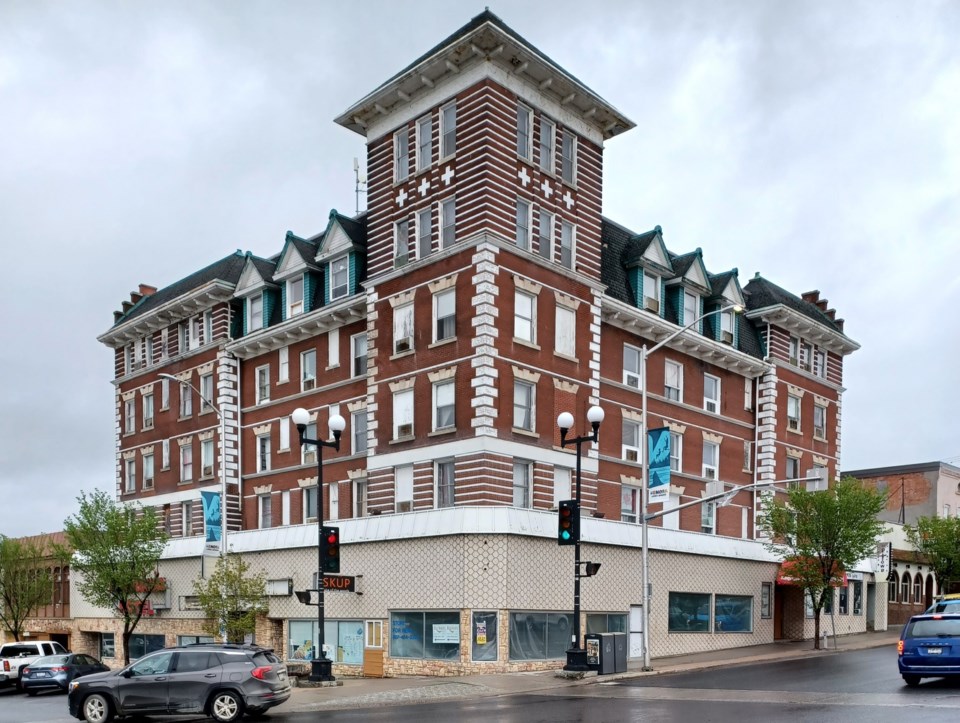KENORA — While there aren’t statistics around how often municipalities use expropriation to seize property for redevelopment purposes, a legal expert in the field says there is precedent.
“There certainly are many cases in the law reports involving acquisitions for urban revitalization,” said Bruce Melville, a British Columbia-based lawyer with experience in expropriation law. Melville also founded and runs the Expropriation Law Centre website.
“I have no idea how common it is (overall), but it's not unheard of.”
Earlier in July, Kenora city council unanimously approved starting the process of seizing the historic Kenricia Hotel property from its current private owners. The city has said it’s part of ongoing downtown revitalization efforts, with mayor Andrew Poirier telling reporters in a virtual press conference earlier in July that the building is “not up to its full potential.”
Currently, there are three commercial tenants in the building and housing advocates say there’s likely about 35 people living or staying there.
Owner Fadel Chidiac told Newswatch he doesn’t have any comment yet on the city’s decision as he just received the expropriation notice.
The process of expropriating property is governed by provincial legislation, namely the Expropriations Act, and assuming the municipality goes through the process properly, Melville said, there aren’t many avenues of appeal for the property owner.
“There's not a lot of opportunity for an owner to challenge whether the expropriation is legally permitted or valid,” Melville said. “There have been cases where legal challenges have been brought, but, at least in Ontario, the scope for an expropriating authority to exercise the expropriation powers in the act is pretty broad.”
Where the process can get held up, he said, is if there is a dispute over how much compensation the land owner is entitled to; if the two sides can’t agree, the person losing the property can apply to the Ontario Land Tribunal.
On its website, the City of Kenora estimates the land acquisition process to take between six and nine months. Depending on a variety of circumstances, Melville said, it could take much longer.
“If for example, a full expropriation, (a) formal expropriation, is carried out and the owner does not accept the offer of compensation, it could be many years before the total amount of compensation payable is finally determined after the legal process is exhausted,” he said. “Six to nine months is very optimistic if you're taking into consideration the possibility of a dispute over compensation.”
Stace Gander, Kenora’s co-interim chief administrative officer and director of economic development and tourism, said in an interview with Newswatch that it is a new process for the city and that “we don't know what we don't know.”
“It's my understanding that the process is the process, and … you can still expropriate the building and take possession while compensation is yet to be resolved.”
Gander said there have been talks “periodically” over the years between the municipality and ownership “and we’re aware that other investors had expressed an interest in that building in the last 10 years.” He said details of those conversations are confidential.
The city has said that, should the expropriation process go through, they’d be looking to partner with an investor and developer to carry out the rehabilitation work.
“Once the expropriation is complete, we would go through a process and get some community engagement in terms of what the community would like to see at the Kenricia Hotel,” Gander said.
“Then we would go through an expression of interest process where we would go to the investment community and have developers submit a proposal or an expression of interest for a vision that they see as being the future of the Kenricia Hotel.”
So far, Gander said, there’s excitement about the planned redevelopment.
“The response from the public has been generally very strong and positive in terms of the long-term benefit to the downtown and the city of Kenora.”
